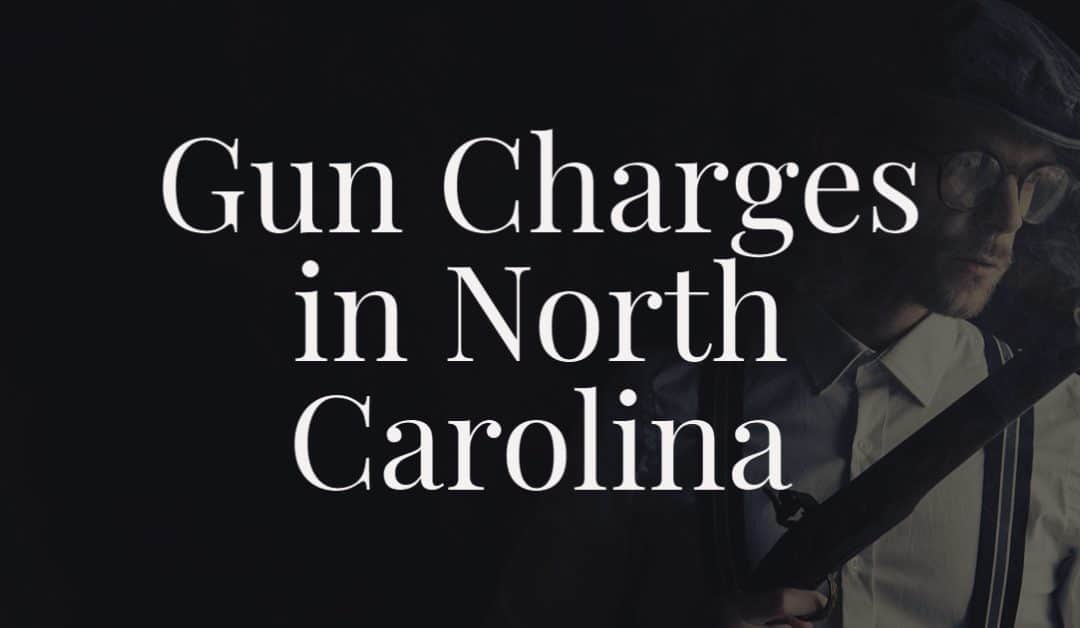In North Carolina, it is legal to possess a gun in certain circumstances. However, your gun rights are in question depending on where you are, who you are, and what you’re carrying. You can legally carry a concealed handgun if you have a concealed carry permit and follow the laws. In some areas, open carry is also legal. Let’s look at the gun laws in our state and how to defend yourself if charged with illegal possession of a weapon.
Is Open Carry Legal In North Carolina?
Open carry is generally legal in North Carolina without a permit. However, it is also often illegal, depending on where you are and what signs are posted. Counties also often regulate open carry on public roads, sidewalks, alleys, or other public property. According to OpenCarry.org, some areas, like the town of Chapel Hill, make it illegal to open carry at all. Other area’s local laws make open carry illegal in:
- Public-owned buildings
- On the grounds or parking areas of those buildings
- In public parks or recreation areas
- Educational Facilities and Grounds (Almost always illegal)
- State Capitol grounds (always illegal)
Who Can Concealed Carry?
There are people who can carry concealed handguns or other weapons because of their roles as military, law enforcement, security officers, guards, judges, district attorneys, etc. However, as a civilian without any specific role that requires a gun, you can face possession charges. Charges range from misdemeanor to felony if caught possessing a hidden handgun without a permit. According to the NC Department of Justice, to carry a legally concealed handgun as a layperson, you must:
- Carry your permit and a valid form of identification with you at all times.
- Disclose that you have a valid concealed handgun permit when you are approached or addressed by any law enforcement officer in North Carolina.
- Inform the officer that you have a concealed handgun.
- Present both the permit and valid identification ONLY at the request of an officer
Where Can I Carry?
Many places allow concealed carry, but it is crucial to pay attention to the law in this area to avoid gun charges. Even if you have a concealed carry permit, it is illegal to carry a concealed weapon in these circumstances:
- Educational Property (unless it is in a parked and locked car)
- Where alcoholic beverages are sold and consumed if posted as illegal
- Certain state property & courthouses (unless it is in a parked and locked car)
- If prohibited by Federal law
- At demonstrations
- Private health care facilities
- Posted property (This may sometimes only be a trespassing charge)
- Law enforcement facility
- Correctional facility
- State-owned rest area if posted as illegal
- Posted local government recreational facilities
- By any person while consuming alcohol or while under the influence of alcohol or any controlled substances (unless obtained legally and taken as directed by a physician).
No Concealed Carry Allowed
If you have not completed an approved concealed carry class or you suffer from a physical or mental infirmity that prevents a handgun’s safe handling, you may not obtain a concealed carry permit. Other conditions that prevent a concealed carry permit include if you are:
- Ineligible to own, possess, or receive a firearm under provisions of State or federal law.
- Under indictment or a finding of probable cause for a felony.
- Judged in court guilty of a felony (except for felony for antitrust violations, unfair trade practices, or restraints of trade or if your firearms rights have been restored)
- Fugitive from justice
- Addicted to marijuana, alcohol, or any depressant, stimulant, or narcotic drug
- Judged by a court as lacking mental capacity or mentally ill
- Discharged from Armed Forces under other conditions than honorable.
- Judged guilty of or received a PJC or suspended sentence for 1+ crimes of violence
If convicted of a nonviolent felony in North Carolina and 20 years have passed since you received your civil rights back, you can file a petition to restore gun rights. Filing is done at the district court where you live. The court may restore your firearms rights after a hearing in court.
Your Defense Matters
If you have criminal charges pending against you for a gun crime, you need a good defense. A well-thought-out defense can mean the difference between spending time in jail and doing community service. For a misdemeanor-type offense, you can expect to spend anywhere from 1-120 days in jail. However, if you are convicted of a felony gun offense, you can expect a longer sentence depending on the class of felony. A Class I felony may mean as little as 4 months in jail, while a Class D Felony could bring you 128 months.
We Can Help
If you need representation for gun-related charges, we are here for you. We understand the North Carolina laws related to weapons charges. Reach out to our criminal defense attorneys at Cape Fear Law.
We bring about the best possible scenario for your situation by working with the courts and negotiating for your future. Let us know how we can help you move forward and face your future with confidence.

